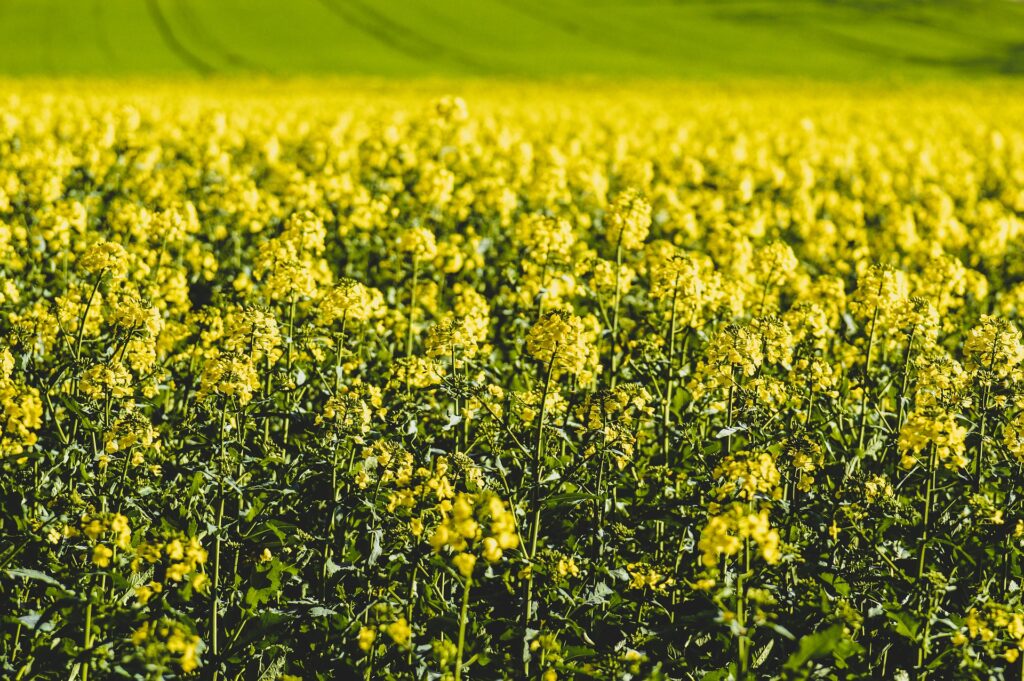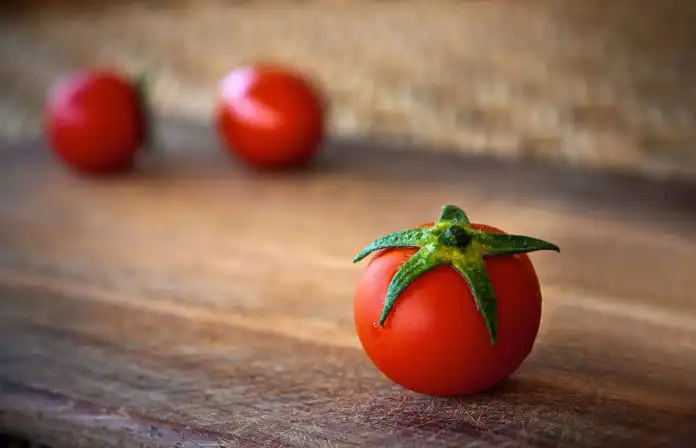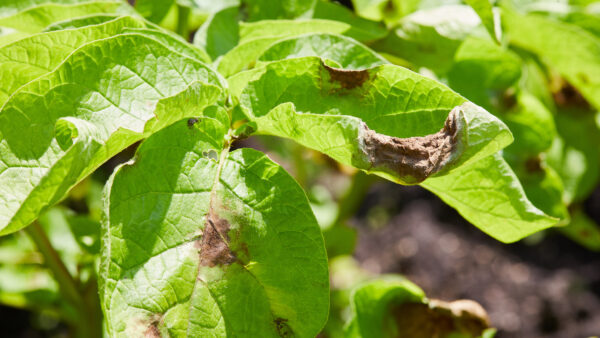Presence of cereal volunteers in oilseed rape (OSR) fields and direct drilling could lead to a marked reduction in damage caused by cabbage stem flea beetle (CSFB), according to a recent Rothamsted study. The results suggest that relatively simple changes in crop management could help control this ubiquitous pest which, in recent years, has led to many farmers abandoning the crop altogether.
The field trials, conducted as part of the EU-funded EcoStack project, spanned four seasons in Harpenden (Hertfordshire) and involved collaboration with researchers from the University of Kassel (Hesse), Germany. They aimed to assess OSR crop damage resulting from adult CSFB feeding and larval infestation under various conditions. These included clovers, and cereals to simulate delayed application of herbicide to kill volunteers. Application of straw mulch was also tested to simulate drilling into stubble trash.
“Plant diversification, especially sowing crops with the addition of companion plants, has been shown to improve insect pest control in many cropping systems,” said Dr. Sam Cook who led the study. “And for OSR the need to find similar effects is acute. Since the ban on use of neonicotinoid seed treatments in 2013, CSFB pest infestations have rocketed and the amount of OSR harvested in the UK has fallen by 50%. We wanted to see if control methods that are aligned with regenerative agronomic practises could help provide some protection.”
During early autumn, adult beetles pose a threat to OSR plants by feeding on cotyledons and young leaves, potentially jeopardizing crop establishment. The larval stages contribute to yield reduction by feeding within the stems. The press release states that neonicotinoid seed treatments were an effective method of control, but with the EU wide ban because of concerns over environmental impact, and the increase in CSFB populations resistant to pyrethroid insecticides, farmers are left without efficient options to manage this pest.
In all experiments, the team noted noteworthy variations in the extent of feeding damage among treatments. Oilseed rape (OSR) crops paired with cereal companion plants or treated with straw mulch exhibited the most pronounced reduction in adult feeding damage. A protective effect of clover was evident in one trial. The release notes that differences in larval infestation were also observed between treatments but were not consistent and might be more related to the OSR plant biomass than to treatments.
“This study shows that companion planting can protect OSR crops from both CSFB adult feeding damage and larval infestation,” said Gaëtan Seimandi-Corda who managed the experiments. “These results suggest that farmers could relatively easily adopt new control techniques, but there is a need for more research to define the best agronomical practices. Cereals such as oats could be sown as companion plants which are later removed, or cereal volunteers could be left for longer before removal to provide protection from CSFB. The timing of the volunteer removal or the sowing date of companions is essential for efficacy and to avoid competition between the crop and the companion.”
Companion plants can also deliver additional ecosystem services such as reduced infestation by other insect pests or improved weed management.













